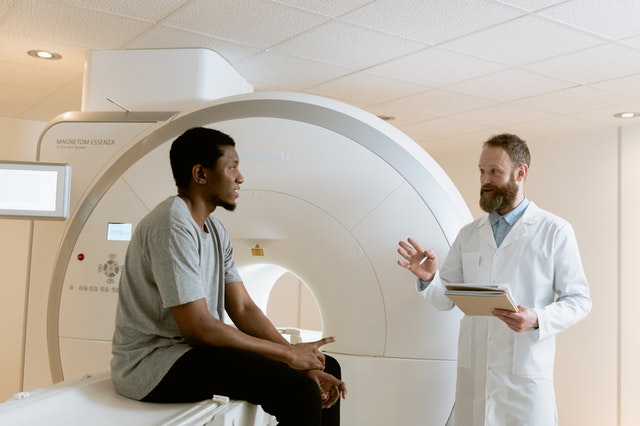
Biomedical engineers often work in research to design medical equipment or techniques that aim to mend, aid, or monitor normal functions of the human body. Bioengineers are commonly used interchangeably with biomedical engineers because of certain similarities between the two professions, however, these are two distinct specialties of engineering.
Bioengineering is a considerably broader field, encompassing the knowledge of applied sciences like biomechanics, thermodynamics, mathematics, bioinformatics, and mechanical engineering. Although significant, its use in healthcare is not its sole application. Bioengineering is also used to design tools for biocompatible materials, agricultural engineering, pharmaceuticals, and renewable energy. Therefore, a biomedical engineer with training in medicine and therapeutics is better suited for responsibilities in health care facilities than a bioengineer.
Career counselors often take on the biomedical engineering vs bioengineering discussion to help prospective students in picking the right choice for themselves. The following sections have been carefully outlined to help you navigate through what exactly biomedical engineering is, and in what areas of healthcare it is being applied today.
Basics of Biomedical Engineering
More concentrated towards designing external support systems and artificial organs, biomedical engineering is that field of engineering which replaces or helps support damaged body parts of an individual. Pacemakers, ventilators, imaging modalities, orthopedic implants are some of the few innovations that have been developed using principles of biomedical engineering. Holding command in various disciplines of science allows these engineers to combine their knowledge and build instruments meant to help patients undergoing treatment, or physicians trying to find a diagnosis. Advances in technology and the surfacing of novel diseases and complications make this profession one of the most demanding ones, and it is estimated that the frequency of biomedical engineers will continue to rise well into the future. A diverse range of career opportunities is available for those who wish to combine their love for engineering and medicine to design tools meant to save lives.
Career Opportunities for Biomedical Engineers
1. Equipment Engineer
Medical appliances, although beneficial, are often costly and unaffordable for most of the working-class population. As an equipment or manufacturing engineer, you can employ your skills to develop low-cost tools without compromising on their quality so that a greater number of patients can benefit from these resources. These may include laboratory or hospital apparatus, prosthetics, imaging, incubators, analyzers to name a few.
2. Biomedical Researcher
No technique or machinery can be brought into the market until it has undergone rigorous testing and clinical trials. Biomedical researchers design studies to test the effectiveness of a new treatment plan, analyze health-related data, and investigate characteristics of emerging pathogens and diseases. The basis of every medical innovation starts from the discoveries and hypotheses generated by a researcher in that field.
3. Consultant
Medical institutes and research centers often require guidance and recommendations on how to execute certain procedures, what type of equipment to use, design workflows, etc. Consultants can also work with different businesses and organizations long-term in helping them make crucial decisions regarding technical aspects of their work.
Several other career opportunities for biomedical engineers include biomaterials developers, software developers, robotics engineers, and even academics. All these jobs ultimately benefit the medical care received by the patients.
Biomedical Engineers in Healthcare
An array of medical devices and machinery that are being used on a day-to-day basis in hospitals have been developed by biomedical engineers. MRI, ultrasound, dialysis machines, and pacemakers have vastly impacted and improved healthcare facilities by reducing the mortality rate of several common diseases like diabetes, cardiovascular diseases, and cancers. The prognosis of any disease lies in its early and accurate diagnosis. Diagnostic test results that used to take 5-10 days have now been automated to give results within just a few hours. These tests are computerized systems that reduce the risk of human error in result interpretation. Similarly, another product of biomedical engineering, prosthetic limbs, has prolonged and enhanced the lives of those patients who needed a replacement for a damaged or missing body part. Vital signs and blood chemistry have also played a significant role in helping doctors understand how a patient responds to a certain treatment. Every corner of a healthcare facility has been equipped with biomedical engineering tools, so its impact on medicine cannot be overlooked.
Conclusion
Although bioengineering has been around for a while, the field of biomedical engineering is emerging as more advancements come to light. Medical care has been strongly influenced by these revolutionary changes and has made efficient therapeutics available to a larger population. Soon healthcare will be more focused on personalized medicine and biomedical engineers are just the experts needed to provide the relevant tools for it.
Hey welcome to my blog . I am a modern women who love to share any tips on lifestyle, health, travel. Hope you join me in this journey!

Speak Your Mind